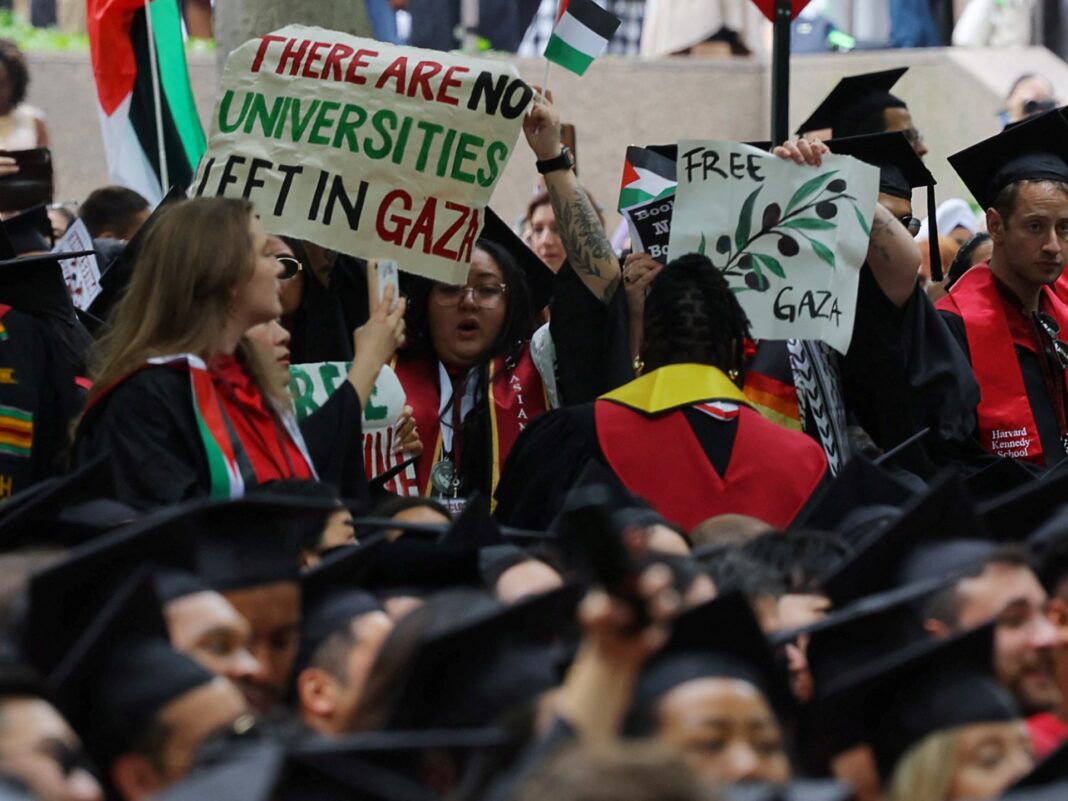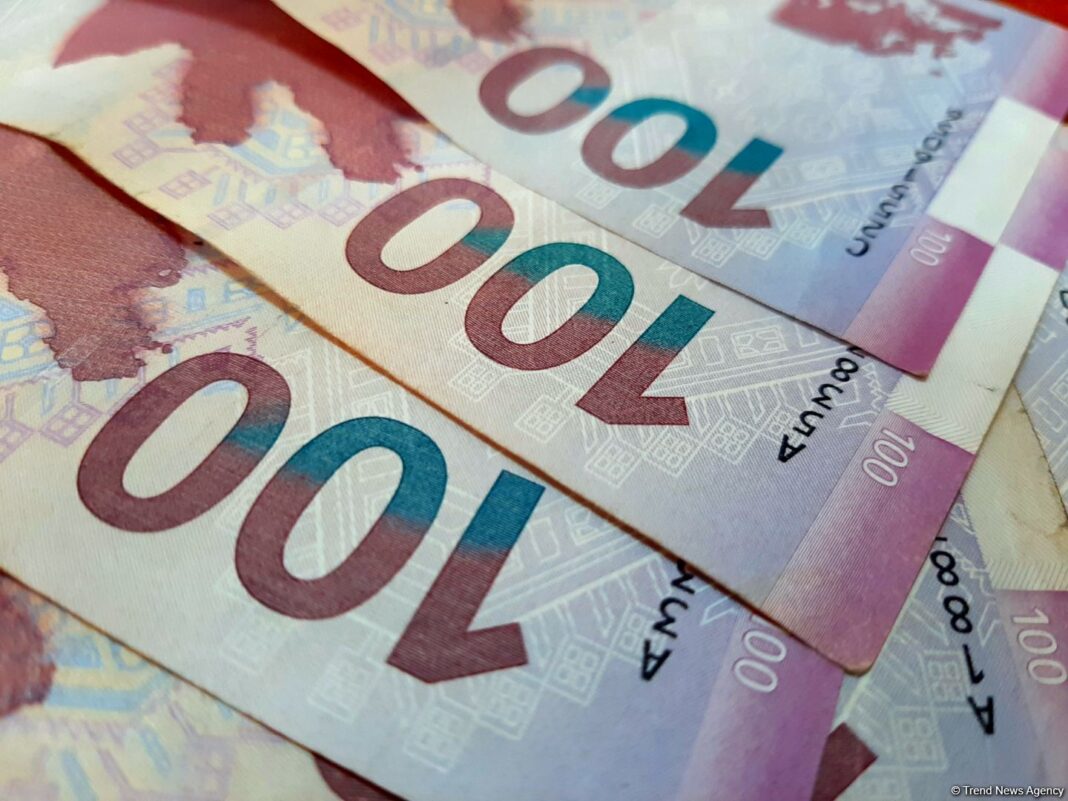United States President Donald Trump’s administration will review billions of dollars in federal funding for Harvard University amid an ongoing crackdown on pro-Palestinian protests on US campuses.
This announcement comes amid similar negotiations between the Trump administration and Columbia University over $400m in federal funding for the New York-based Ivy League school. Columbia recently agreed to a series of demands from the administration in a bid to keep the funds flowing – but the US government has not confirmed whether it will restore the contracts and grants that it paused.
Here is more about what is happening with Harvard:
Why is the Trump administration assessing Harvard funding?
On Monday, the Department of Education, Department of Health and Human Services, and the General Services Administration released a statement saying they will review federal contracts and grants at Harvard University.
The statement added that the Joint Task Force to Combat Anti-Semitism will review $255.6m in contracts between the federal government and Harvard and its affiliates. It is also reviewing more than $8.7bn in multiyear grant commitments to Harvard and its affiliates.
The Task Force was formed in response to Trump’s January 29 executive order called “Additional Measures to Combat Anti-Semitism”, the Department of Justice announced on February 3.
The executive order is officially aimed at targeting anti-Semitism – which saw a spike in the US and globally after October 7, 2023, when Hamas and other Palestinian armed groups attacked Israel and led to the deaths of more than 1,100 people. Since then, Israel’s brutal war on Gaza has killed more than 50,000 people in the enclave.
However, in practice, the order has laid the grounds for the Trump administration to seek the deportation of several international students who participated in pro-Palestine campus protests across the US last year – without any clear evidence linking them to anti-Semitism or pro-Hamas activities.
That executive order has also served as the basis for the Trump administration to target universities it argues have not done enough to crack down on protests.
“The Task Force’s first priority will be to root out anti-Semitic harassment in schools and on college campuses,” the Justice Department said in the statement.
“Harvard’s failure to protect students on campus from anti-Semitic discrimination – all while promoting divisive ideologies over free inquiry – has put its reputation in serious jeopardy,” the statement quotes Secretary of Education Linda McMahon.
“Harvard can right these wrongs and restore itself to a campus dedicated to academic excellence and truth-seeking, where all students feel safe on its campus,” McMahon said.
What happened at Harvard?
On April 24, 2024, pro-Palestine student protesters set up an encampment on a campus site called Harvard Yard in solidarity with Palestinians in Gaza.
Harvard’s encampment, called Harvard Out of Occupied Palestine (HOOP), was among several such encampments that came up at a range of US universities. They demanded, among other things, that their universities divest from weapons companies and companies associated with Israel.
On May 6, Harvard President Alan Garber released a statement saying HOOP had disrupted the institute’s educational activities. “The right to free speech, including protest and dissent, is vital to the work of the research university. But it is not unlimited,” Garber said.
“The encampment favors the voices of a few over the rights of many who have experienced disruption in how they learn and work at a critical time of the semester. I call on those participating in the encampment to end the occupation of Harvard Yard.”
On May 14, the university and student protesters announced that they had reached an agreement to end the encampment. However, the two sides released differing statements, with the students saying Harvard had agreed to their demands and the university saying it had only opened itself to dialogue about the demands.
For instance, when it came to the demand for divestment from Israel, Harvard said it had agreed to be more transparent with its students about how its endowment worked.
Before the encampments even started, in January 2024, Garber set up two presidential task forces on campus: One dedicated to combat anti-Semitism and the other dedicated to combat bias against Muslims and Arabs.
On March 29, 82 of Harvard Law School’s 118 active professors signed a letter addressed to the student body, accusing the federal government of retribution against law firms and lawyers representing clients and causes that the Trump administration opposes.
Trump has signed presidential actions targeting law firms linked to Robert Mueller, a former US special counsel who investigated Russian ties to Trump’s 2016 presidential campaign. Trump’s orders seek to restrict lawyers’ access to federal buildings and courts.
What will happen if Trump cuts Harvard’s funding?
On Monday, Harvard President Garber released a statement in response to the Trump administration’s announcement about the funding assessment.
“If this funding is stopped, it will halt life-saving research and imperil important scientific research and innovation,” Garber said.
But the Trump administration suggested, in a statement, that Harvard was involved in negotiations with the government on its demands.
“We are pleased that Harvard is willing to engage with us on these goals,” said Sean Keveney, a member of the Task Force and acting Health and Human Services General Counsel, in the Monday statement.
What happened to Columbia University?
Columbia emerged as the epicentre of pro-Palestine campus protests in 2024, after the first encampment was pitched on April 17 last year – inspiring similar encampments at universities across the country.
Protesters at Columbia occupied Hamilton Hall, an academic building on campus, on April 30, after which the university called the New York police to crack down on its student protesters.
In February this year, the Trump administration revoked $400m in federal funding to Columbia, citing “a failure to protect Jewish students from anti-Semitic harassment”.
On March 8, agents from Immigration and Customs Enforcement (ICE) arrested Mahmoud Khalil, 29, a recent Columbia graduate who was a prominent figure in the negotiations with the university during last year’s campus protests. The US government now seeks to deport Khalil, who held a green card when he was arrested and is currently detained in an ICE processing facility in Jena, Louisiana.
On March 5, the US State Department revoked the visa of Ranjani Srinivasan, an urban planning PhD candidate at Columbia University. Four days later, Columbia unenrolled her. Srinivasan flew to Canada on March 11 before she could be deported.
On March 13 this year, the Joint Task Force to Combat Anti-Semitism issued a letter to Columbia, outlining nine preconditions for negotiations to restore the funding. On March 18, the university listed new rules in a memo sent to the Trump administration, accepting the government’s demands.
Some of these rules decree that students who are protesting or demonstrating will have to present university identification if they are asked to, and face masks would be banned for the purpose of concealing one’s identity. However, face masks are still permitted for religious or medical reasons.
Columbia also said it has hired 36 security officers with special powers to arrest students “when appropriate”, adding that the university also has a longstanding relationship with the New York police and relies on the force for additional security assistance.
Additionally, a new senior provost will oversee Columbia’s departments offering courses on the Middle East.


